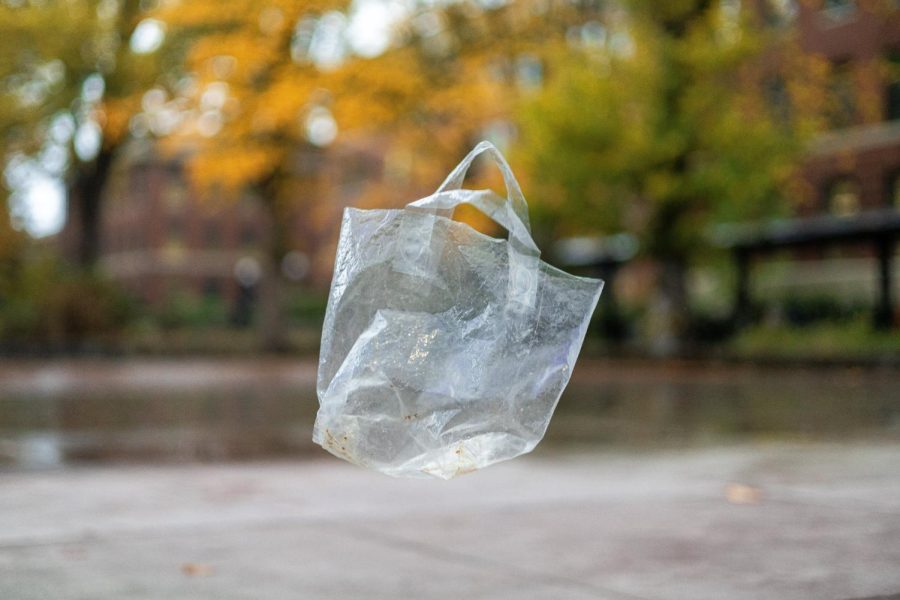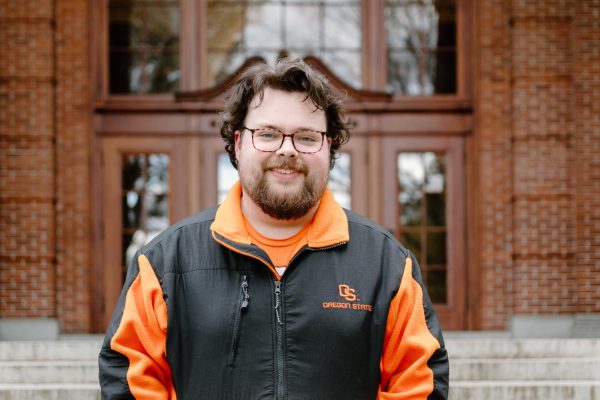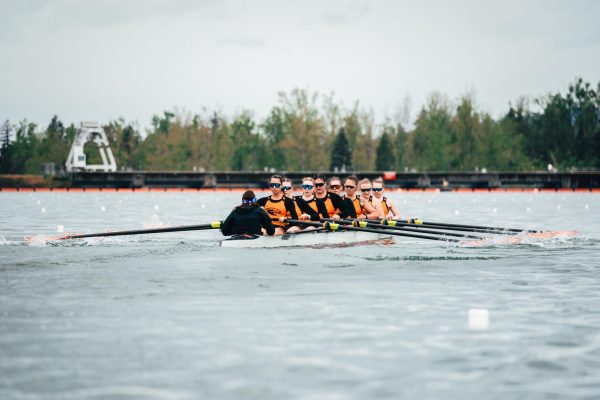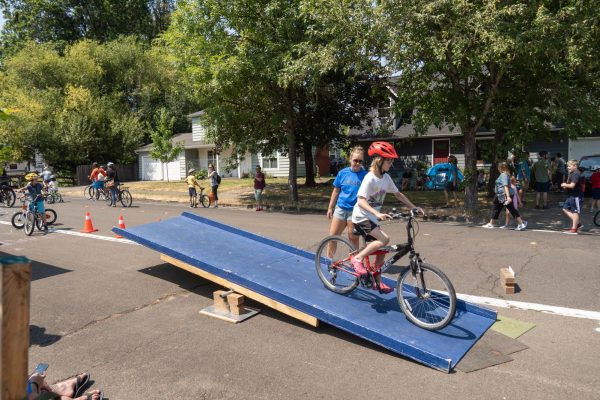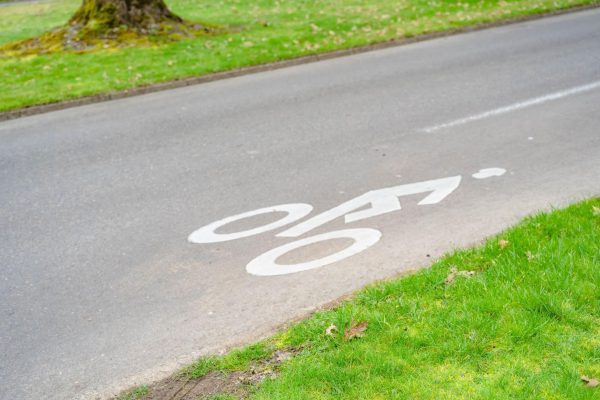National Renewable Energy Laboratory experts, OSU researcher study ways to improve plastic recycling
In this photo illustration, a plastic bag is depicted as drifting in the wind in the SEC Plaza on Nov. 1. OSU researchers are working with the department of energy to engineer microbes into a component for nylon production.
November 3, 2022
Researchers from the Department of Energy’s National Renewable Energy Laboratory, including an Oregon State University professor, have developed a new process for recycling plastics, according to a recent press release.
The team, including OSU Professor Lucas Ellis and led by the NREL’s Gregg Beckham, created a process that uses oxygen and catalysts to break down plastics into smaller components, then uses biologically engineered soil microbes capable of consuming these components and producing either a biopolymer or a component for nylon production.
“Our work has resulted in a process that can convert mixed plastics to a single chemical product,” said Ellis, an assistant professor of Chemical Engineering in OSU’s College of Engineering, in a press release. “In other words, it is a technology that recyclers could use without the task of sorting plastics by type.”
The research has the potential to not only simplify the process of recycling plastics, but to allow types of plastics that were previously unrecyclable to be recycled, according to Beckham.
Plastic waste is a significant problem both in the United States and abroad. According to the NREL, only about 5% of plastic waste in the US is recycled. Scientists estimate that at this rate, by 2050 the ocean will contain more plastic than fish by weight, according to the NREL.












































































































